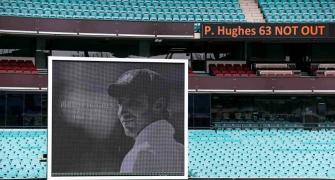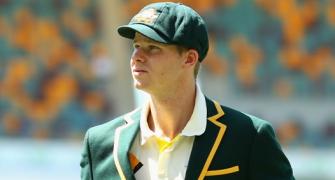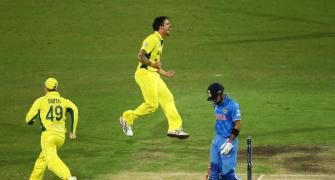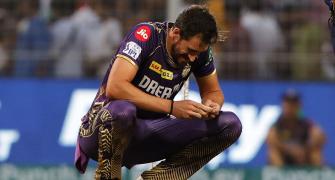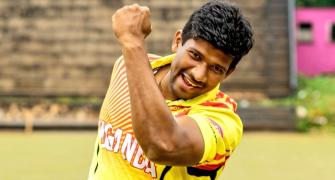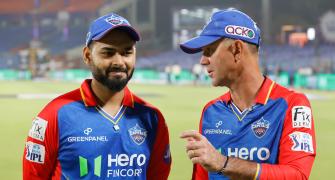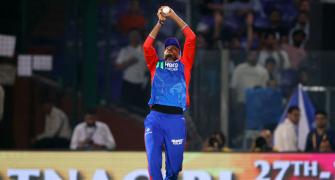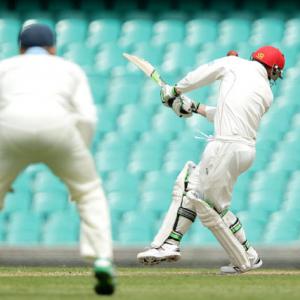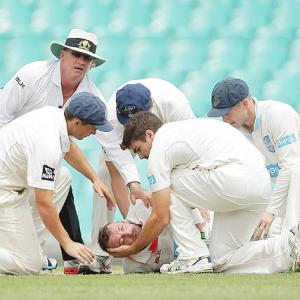'I am of the opinion the attention received by Phillip after being struck had no role whatsoever on his subsequent demise, due to the nature and severity of his injury'
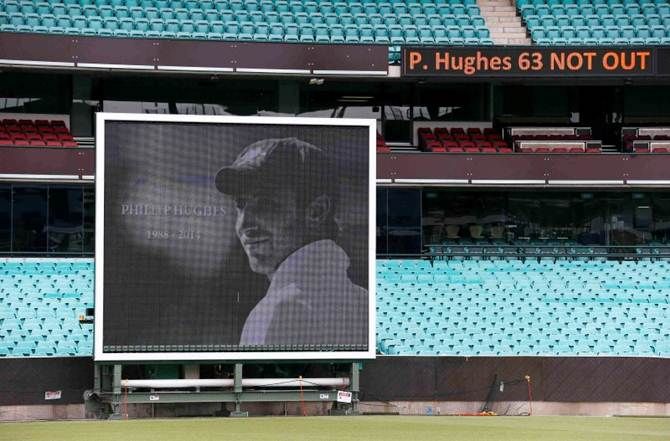
Phillip Hughes would not have been sufficiently protected from the ball that struck and killed him during a cricket match 18 months ago even if he had been wearing the highest-standard helmet, a report into the Australian's death said on Wednesday.
Hughes was struck on the back of the head by a rising delivery when batting for South Australia in a Sheffield Shield game at the Sydney Cricket Ground in November 2014.
He died two days later in a Sydney hospital at the age of 25.
"The helmet was compliant with an Australian standard, which has since been withdrawn, but was not compliant with the more recent British standard," the report, led by barrister David Curtain, said.
"In any event ... I do not believe the new helmet would have afforded additional protection against the blow given the location of where Phillip was struck, as the protection to the neck, at the rear, is no different."
The report also said the slow arrival of the ambulance that provided medical treatment to the test cricketer played no part in his death.
"Although there was apparently a delay in the ambulance arriving, Phillip was being cared for appropriately in the interim," it added.
"I am of the opinion the attention received by Phillip after being struck had no role whatsoever on his subsequent demise, due to the nature and severity of his injury."
Hughes's death shocked the cricketing world and ignited a debate about safety standards, particularly for batsmen, who can face fast bowling that exceeds 150 kilometres per hour (93 mph).
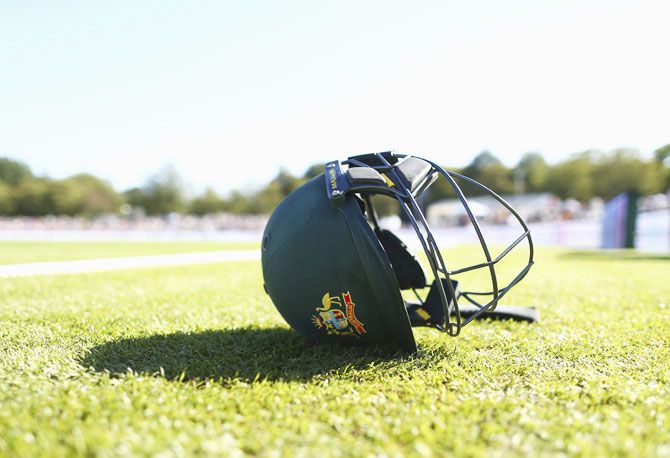
The report recommended that all first class cricketers should be required to wear the highest British standard (BS 7928:2013) helmets available when batting against fast and medium pace bowling in matches and during practise.
It also recommended wicket keepers keeping up to the stumps should wear helmets and protective eye-wear.
Players fielding close to the stumps, excluding slips fieldsmen, should also wear helmets, the report said.
The report noted that more international players had adopted the use of stem guards, which are attached across the back of the helmet, as "they see it providing additional safety".
"I would recommend that this device be properly evaluated for functionality and comfort as well as to determine if it materially increases player safety, before making any recommendation as to its use," it said.
Cricket Australia (CA) said it had received the Curtain review last year and would enact new safety measures.
“The global cricket community was deeply saddened by the tragic death of Phillip Hughes and the great loss his family suffered,” CA CEO James Sutherland said.
“We have been considering (Curtain's) recommendations and discussing with relevant bodies as to how we best make changes necessary to prevent an accident of this nature happening again.
“While there will always be a small risk we believe that the measures we have already taken and will enact following this review will reduce that risk even further.”
Australia to push for 'concussion substitutes'
Australia's cricket board is seeking permission to trial the use of substitute players in domestic matches that would allow them to bat and bowl in place of team mates requiring medical attention for possible concussion.
Cricket Australia CEO James Sutherland said it had sought approval from the International Cricket Council (ICC) to allow 'concussion substitutes' in local games and expected a response from the world governing body by the end of the month.
Sutherland's comments followed the release of a review into the death of Australia batsman Phillip Hughes, who was struck in the head by a ball when batting in a domestic match in November 2014.
"We’re also seeking approval from the Cricket Australia playing conditions advisory committee to allow concussion substitutes in all domestic male and female competitions under our auspices," he told reporters at the Melbourne Cricket Ground on Wednesday.
"One of my observations is that while we support this recommendation being explored, I think it needs to be fully discussed and socialised.
"It is one of the fundamentals of the game of cricket that it’s a game of 11 players and a substitute has not been allowed in the past and we need to work through all of the machinations of that possibility."
Substitutes have been permitted to replace injured or ill players in matches for over 100 years but are not allowed to bat, bowl or act as wicketkeepers, according to the laws of the game.
"The fundamental issue here is the desire for medical staff to have the ultimate say in an incident of concussion to be able to make a judgement and to allow that to be facilitated as easy as possible," added Sutherland.
The report into Hughes's death, led by barrister David Curtain, made a number of safety recommendations including the mandatory use of helmets by batsmen facing fast and medium paced bowling in first class matches and also for wicketkeepers and fieldsmen close to the wicket.
It made no recommendation on the use of 'concussion substitutes' but described it as a "relevant issue" that might require consideration.
Sutherland said he saw concussion substitutes in Test matches as a "natural extension" following a possible adoption in domestic matches and suggested other classes of injury should also be considered in how they are activated.


